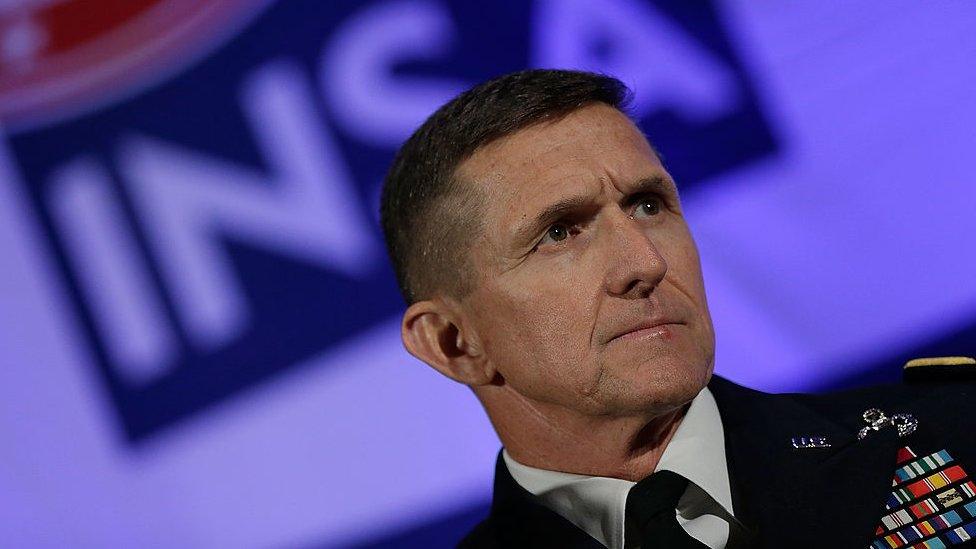Trump pardons: US justice department unveils bribery inquiry
- Published
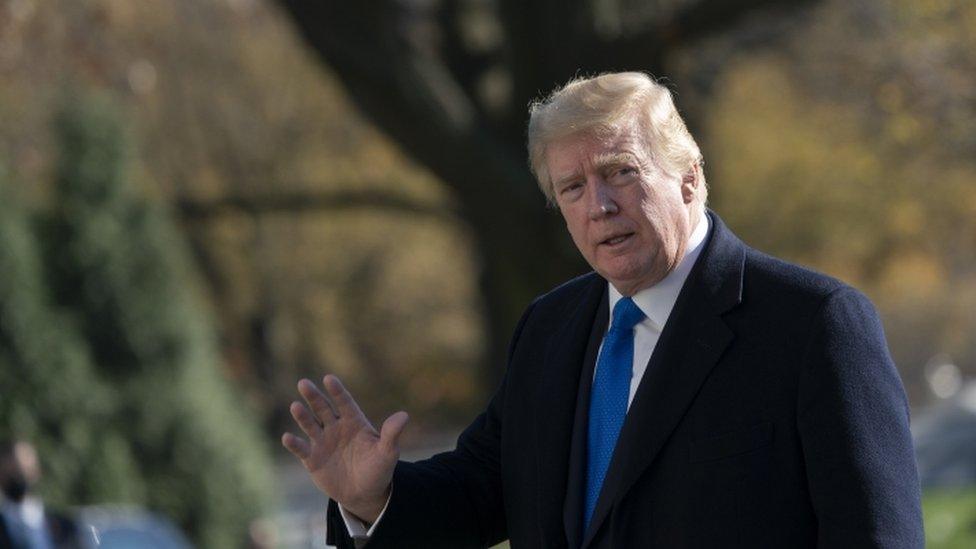
With only a few weeks before Donald Trump leaves the White House, the issue of presidential pardons comes to the fore
The US justice department is looking into claims that lobbyists have tried to use bribes to secure a presidential pardon, unsealed court papers show.
They say that in August investigators began investigating a "secret lobbying scheme" possibly involving attempts to contact White House officials.
The redacted filings do not give any names, but the justice department says no government official is being probed.
In a tweet, President Trump referred to the investigation as "fake news".
Allow X content?
This article contains content provided by X. We ask for your permission before anything is loaded, as they may be using cookies and other technologies. You may want to read X’s cookie policy, external and privacy policy, external before accepting. To view this content choose ‘accept and continue’.

It is common for outgoing presidents to use their right to issue pardons, which wipe out convictions.
President Trump - who is due to leave office in January, although he is still contesting his election defeat in the courts - has used the procedure a number of times.
Last week he pardoned his former national security adviser Michael Flynn, who pleaded guilty to lying to the FBI.
Meanwhile, US media say Mr Trump has been discussing the possibility of pardoning family members.
What are the bribery claims?
The document released by a federal court in Washington DC on Tuesday relates to a request by the Department of Justice (DOJ) to use emails and other communications seized in a bribery-for-pardon inquiry.
The data, prosecutors say in the paper, points to potential "criminal activity".
Are presidential pardons Trump's secret weapon?
They say individuals - whose identities are redacted - appear to have "acted as lobbyists to senior White House officials without complying with the registration requirements" for such activity.
Their aim, according to the papers, may have been to secure "a pardon or reprieve of sentence" for another unidentified individual.
According to the documents, prosecutors in August sought a court order "so that the investigative team [could] access" the communications and confront the suspects.
It is unknown who the people targeted were. On Tuesday the DOJ said: "No government official was or is currently a subject or target of the investigation disclosed in this filing."
Who has Trump pardoned?
Mr Trump has so far been less enthusiastic in using his right to grant clemency than any of his recent predecessors, according to the Pew Research Center, external.
Barack Obama, whom Mr Trump replaced in 2017, granted 212 pardons and 1,715 commutations - the most since President Harry Truman in the 1940s and 1950s.
President Trump, by contrast, had granted just 28 pardons and 16 commutations as of late November.
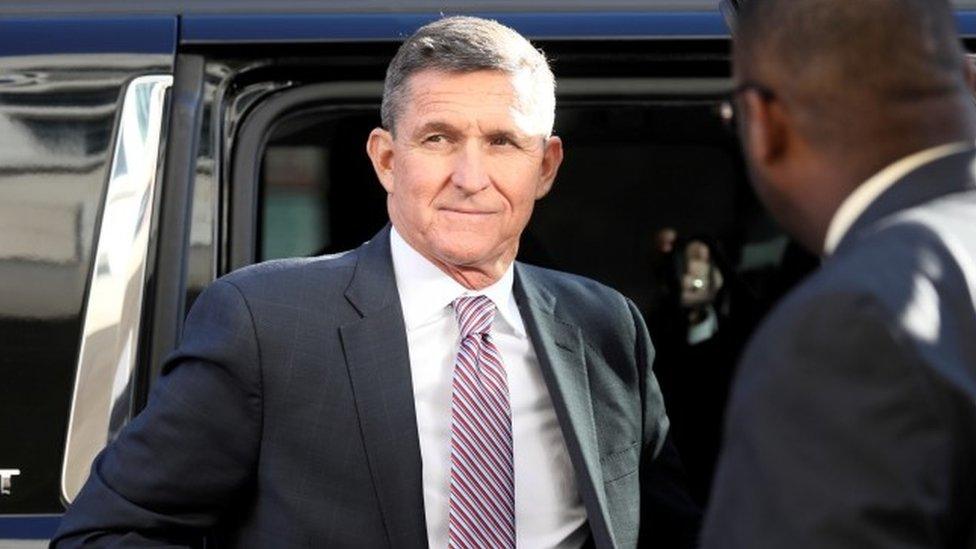
Michael Flynn was fired serving as national security adviser for 23 days in 2017
Apart from Michael Flynn - who was convicted in 2017 of lying about his contacts with the Russian ambassador the year before - people pardoned by Mr Trump include political strategist Roger Stone, ex-Arizona sheriff Joe Arpaio, and former vice-presidential aide Scooter Libby.
A number of Trump allies are reportedly hoping for clemency, including ex-advisers Rick Gates and George Papadopoulos, who were both convicted in the investigation into Russian interference in the 2016 election.
US media also say the president is considering issuing pardons for family members - even though none has been accused of any crime.
One source told NBC News that the suggestion has arisen because the president feels embattled, external - not because he believes that he or any of his relatives are guilty of wrongdoing.
The New York Times says Mr Trump appears concerned that under future President Joe Biden, the Democratic administration might target his children, external Donald Jr, Eric and Ivanka Trump, as well as Ivanka's husband Jared Kushner, a senior White House adviser.
There are precedents for granting clemency to people who have not been indicted.
In 1974, President Gerald Ford pre-emptively pardoned his predecessor Richard Nixon, ended any possibility of prosecution following the Watergate scandal.
Related topics
- Published5 June 2018
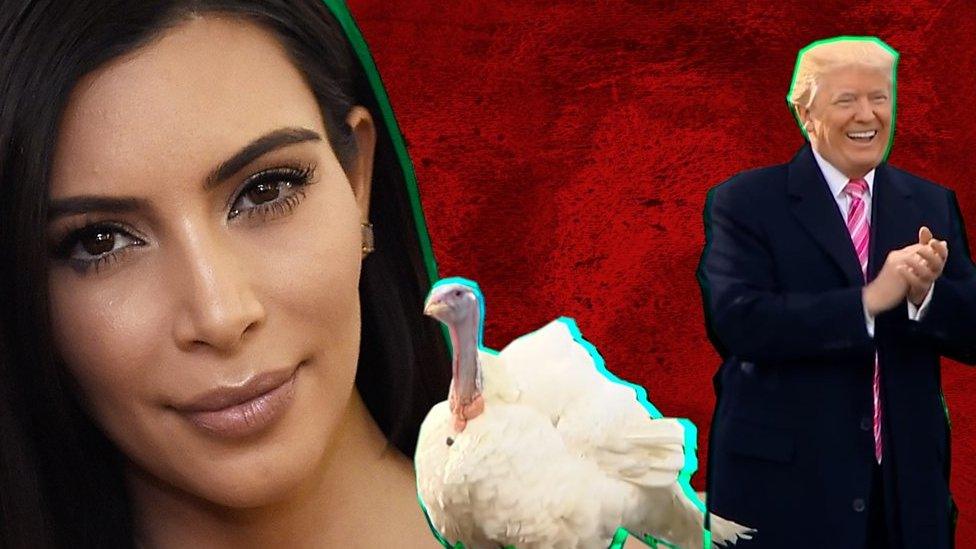
- Published25 November 2020
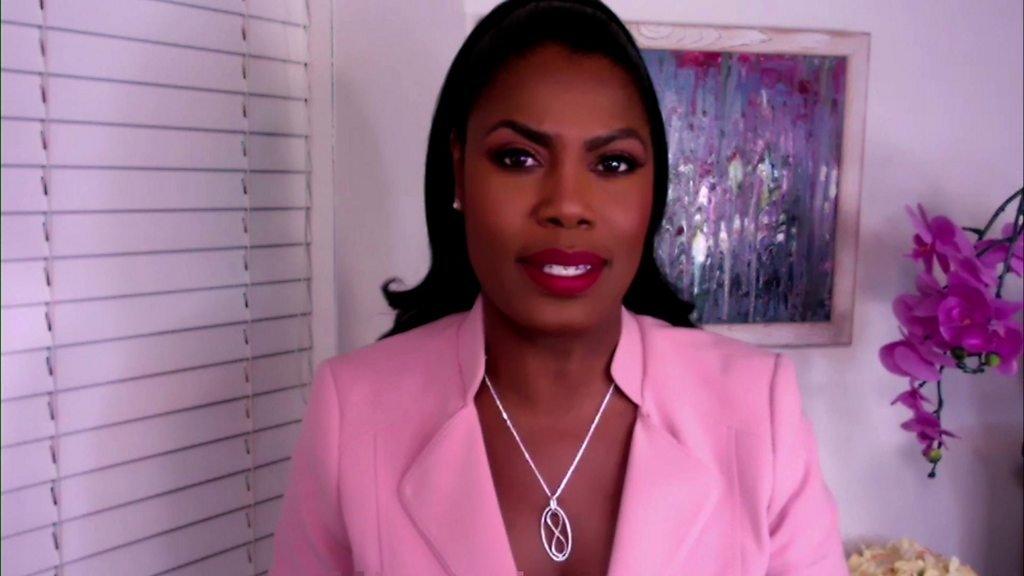
- Published25 November 2020
